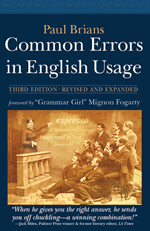agnostic / atheist
yanira.vargasBoth agnostics and atheists are regularly criticized as illogical by people who don’t understand the meaning of these terms. An agnostic is a person who believes that the existence of a god or gods cannot be proven or known. Agnosticism is a statement about the limits of human knowledge. It is an error to suppose that agnostics perpetually hesitate between faith and doubt: they are confident they cannot know the ultimate truth. Similarly, atheists believe there are no gods. Atheists need not be able to disprove the existence of gods to be consistent just as believers do not need to be able to prove that gods do exist in order to be regarded as religious. Both attitudes have to do with beliefs, not knowledge.
“Agnostic” is often used metaphorically of any refusal to make a judgment, usually on the basis of a lack of evidence; people can be agnostic about acupuncture, for instance, if they believe there is not enough evidence one way or another to decide its effectiveness.
BUY THE BOOK!
afterwards / afterwords
yanira.vargasLike “towards,” “forwards,” and “homewards,” “afterwards” ends with -wards.
“Afterwords” are sometimes the explanatory essays at the ends of books or speeches uttered at the end of plays or other works. They are made up of words.
BUY THE BOOK!
afterall
yanira.vargasAfrican American
yanira.vargasThere have been several polite terms used in the US to refer to persons of African descent: “colored,” “Negro,” “Black,” “Afro-American,” and “African American.” “Colored” is definitely dated, though “people of color” is now widely used with a broader meaning, including anyone with non-European ancestry, sometimes even when their skin is not discernibly darker than that of a typical European. Although a few contemporary writers like to defy convention by referring to themselves as “Negro,” this is definitely a provocative exception to the general pattern.
“Black,” became a proudly assertive label claimed by young radicals in the 1960s, and although you may occasionally see it referred to as a racist insult, it is standard usage today. Some people insist on capitalizing “Black,” but others prefer “black.” The most common neutral term is “African American,” but Americans sometimes misuse it to label people of African descent living in other countries or even actual Africans. To qualify as an “African American” you have to be an American.
Although it is traditional to hyphenate “African-American,” “Irish-American,” “Cuban-American,” etc., there is a recent trend toward omitting the hyphen, possibly in reaction to the belittling phrase “hyphenated Americans.” However, some styles still call for the hyphen when the phrase is used adjectivally, so that you might be an African American who enjoys African-American writers. Omitting the hyphen may puzzle some readers, but it’s not likely to offend anyone.
BUY THE BOOK!
Afghan / Afghani
yanira.vargasThe citizens of Afghanistan are Afghans. Similarly, it’s Afghan food, Afghan politics, and Afghan afghans. The only time to use “Afghani” is in reference to the unit of Afghan currency by that name. Afghans spend Afghanis.
BUY THE BOOK!
affluence / effluence
yanira.vargasaffect / effect
yanira.vargasThere are five distinct words here. When “affect” is accented on the final syllable (a-FECT), it is usually a verb meaning “have an influence on”: “The million-dollar donation from the industrialist did not affect my vote against the Clean Air Act.”
Occasionally a pretentious person is said to affect an artificial air of sophistication. Speaking with a borrowed French accent or ostentatiously wearing a large diamond ear stud might be an affectation. In this sort of context, “affect” means “to make a display of or deliberately cultivate.”
Another unusual meaning is indicated when the word is accented on the first syllable (AFF-ect), meaning “emotion.” In this case the word is used mostly by psychiatrists and social scientists—people who normally know how to spell it.
The real problem arises when people confuse the first spelling with the second: “effect.” This too can be two different words. The more common one is a noun: “When I left the stove on, the effect was that the house filled with smoke.” When you affect a situation, you have an effect on it.
Less common is a verb meaning “to create”: “I’m trying to effect a change in the way we purchase widgets.” No wonder people are confused. Note especially that the proper expression is not “take affect” but “take effect”—become effective. Hey, nobody ever said English was logical: just memorize it and get on with your life.
The stuff in your purse? Your personal effects.
The stuff in movies? Sound effects and special effects.
“Affective” is a technical term having to do with emotions; the vast majority of the time the spelling you want is “effective.”
BUY THE BOOK!
aesthetic / ascetic
yanira.vargasPeople often encounter these two words first in college, and may confuse one with the other although they have almost opposite connotations. “Aesthetic” (also spelled “esthetic”) has to do with beauty, whereas “ascetic” has to do with avoiding pleasure, including presumably the pleasure of looking at beautiful things.
St. Francis had an ascetic attitude toward life, whereas Oscar Wilde had an esthetic attitude toward life.
BUY THE BOOK!
advocate for
yanira.vargasWhen they are acting as advocates for a cause, people often say they are “advocating for”—say—traffic safety. This is not as widely accepted as “campaigning for” or “working toward.” Saying you are “advocating for the blind” leaves a lot of listeners wondering what it is you advocate for them. If you can substitute “advocate” for “advocate for,” you should do so: “I advocate for higher pay for teachers” becomes “I advocate higher pay for teachers.”
BUY THE BOOK!
